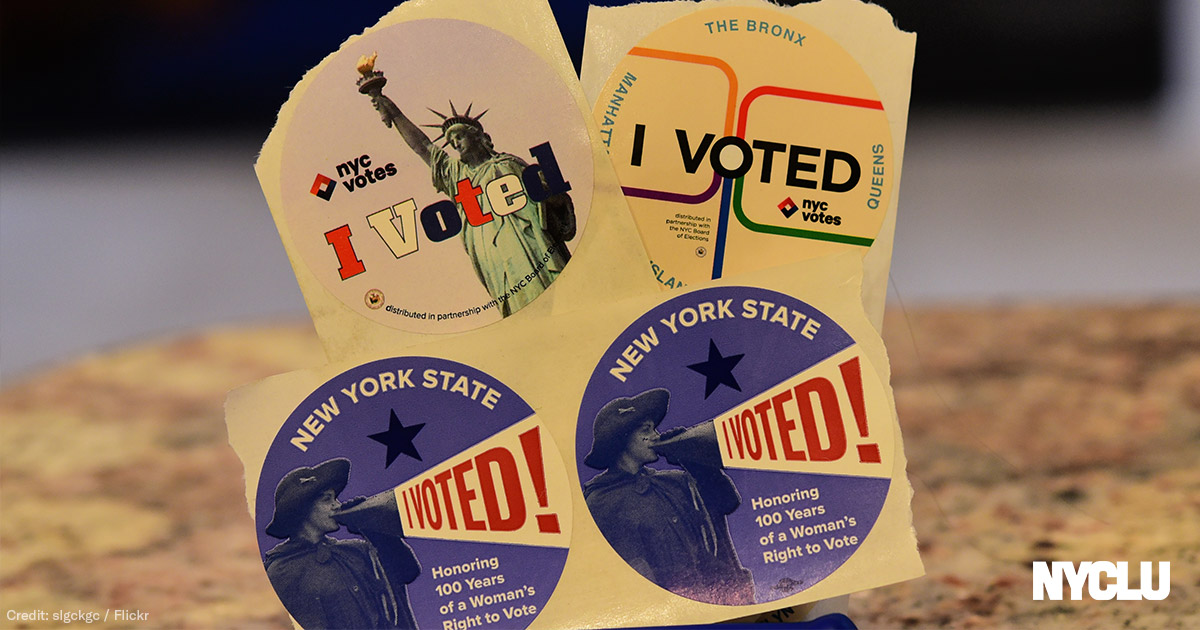Pro-Palestinian Campus Protests Shouldn’t be Snuffed Out by Police
Civil Liberties Union

On Election Day, 75 percent of Rochester voters approved a ballot proposition that will create a civilian-controlled Police Accountability Board. Meanwhile, voters in New York City also approved measures that will strengthen police accountability. And for the first time, New Yorkers took advantage of nine days of early voting.
Here’s more on the three takeaways from this year’s elections.
We know what happens when a police department relies on internal mechanisms to discipline officers who break the rules.
Too often, officers escape punishment when they abuse the people they are supposed to protect. A lack of meaningful police accountability not only skirts justice but also puts people’s lives in danger when officers who repeatedly harm civilians keep their jobs.
Rochester’s vote for a civilian controlled Police Accountability Board takes the power to discipline officers out of the hands of the police department and into the hands of an outside authority. It also makes Rochester the first municipality in New York State — and one of just a handful in the country — with a civilian board that has the power to discipline officers.
The ballot proposition is likely to face a legal challenge from the Rochester police officers’ union, but voters made it clear they want robust accountability that comes from the people, not the police department.
Voters in New York City overwhelmingly approved measures that will strengthen the Civilian Complaint Review Board, which is the independent body charged with overseeing the NYPD.
An investigation into the NYPD’s handling of disciplinary procedures found that the Department is not punishing officers who lie. Currently, the NYPD Internal Affairs Bureau handles all investigations into false official statements by officers – even when those false statements are made to the CCRB. Right now when the CCRB finds that an officer has lied during its investigation, the agency can’t do anything about it. That will change after voters approved a ballot measure that expands the CCRB’s authority to investigate officers accused of lying during an investigation by the Board.
That same ballot measure strengthens the CCRB’s subpoena power and requires the NYPD Commissioner to submit a written explanation to the CCRB when they disagree with a disciplinary recommendation by the Board.
Unlike in Rochester, the CCRB does not have final authority to discipline officers. But these measures should still enhance police oversight in New York City.
The ballot measure passed despite heavy spending by the NYPD police officer’s union.
For the first time, New Yorkers across the state were able to vote early.
Numbers are still trickling in, but early indications are that about 60,000 New York City residents voted early. That’s about 8 percent of the total number of people who voted in the city. That number very likely could have been higher if the city’s Board of Elections had increased the number of early voting sites in the city.
The Board’s inexplicable decision to only allow voters to cast their ballot at their specific assigned early voting site – instead of at any early voting location – also probably depressed turnout.
Similarly, Rensselaer County’s failure to open an early voting site in Troy, the county’s largest city, likely kept early voting numbers lower than they could be.
Early voting is an important expansion of democracy. But its success will largely hinge on how well it’s implemented. The NYCLU continues to pressure counties to roll out early voting in a way that ensures robust participation and does not disadvantaged communities of color.